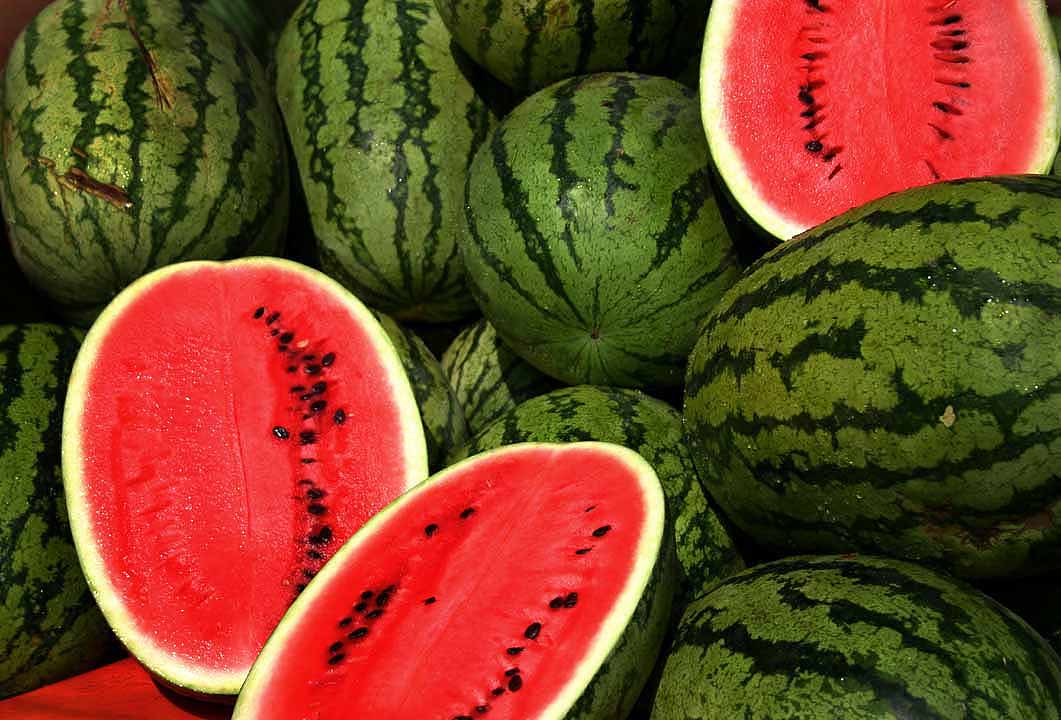August is the season for: 
Watermelon
I have always loved summer for a lot of reasons, not the least of which is the fresh food. And one of the favorite foods I look forward to is watermelon. Of course, it is available year round now, but the best tasting watermelons come from local growers. You can buy them this time of year for a paltry price and find them in abundance. Seedless watermelons make enjoying this juicy treat easier. Not just because you don’t have to spit out the seeds but because the melon comes in a smaller size.
Growing up, our family of 8 made eating a regular seeded watermelon – which typically was 20 pounds – pretty easy work. My smaller family unit, however, does a good cleaning out a 10 pound seedless before it starts turning sour. There are now many ways to use watermelon in your menu, that it should be no problem cleaning up a whole melon.
Besides eating the watery sweet slice right off the rind, you may have enjoyed watermelon salads with herbs and vinegar, watermelon drinks and watermelon salsas. Here is a recipe for a salad you might find refreshing! http://www.nutritiouseats.com/watermelon-cucumber-salad/
Including watermelon in your diet is a great idea in any form.
Here’s why (source- http://ucdintegrativemedicine.com/2016/07/celebrating-wonders-watermelon/#gs.MFzpQCQ )
Here are some things you may not know about Watermelon:
In addition to the high water and fiber content, watermelon contains high levels of brain-boosting vitamin B6, vision-clearing vitamin A, as well as potassium, vitamin C, and manganese.
Watermelon is also rich in lycopene, the healthful carotenoid antioxidant found in red and pink fruits like tomatoes and grapefruit. Lycopene is what makes the melon’s flesh red. The deeper the red hue, the higher the lycopene. Just one-half cup of red-fleshed watermelon has 1.5 times the lycopene (6mg) compared to one large raw tomato (4mg). However, it is important to note that the total antioxidant activity of tomatoes (including lycopene bioavailability) is a lot higher when the fruit is cooked.
Lycopene’s powerful antioxidant properties have the potential for preventing and fighting certain types of cancer. Lycopene may also lower the risk of stroke. One meta-analysis study showed that men with the highest blood lycopene concentrations had a 55 percent lower risk of stroke than men with the lowest lycopene levels. Watermelon contains l-citrulline, an amino acid that may protect against muscle pain. One study found that men who drank natural watermelon juice prior to exercise had less muscle pain the day after compared to men who drank the placebo. So pick up a green orb today and enjoy the juicy red wonderful watermelon!
Yours In Health,
Nancy Thompson 8WW Director
More information about 8 Weeks to Wellness: www.8wwspringfield.com
